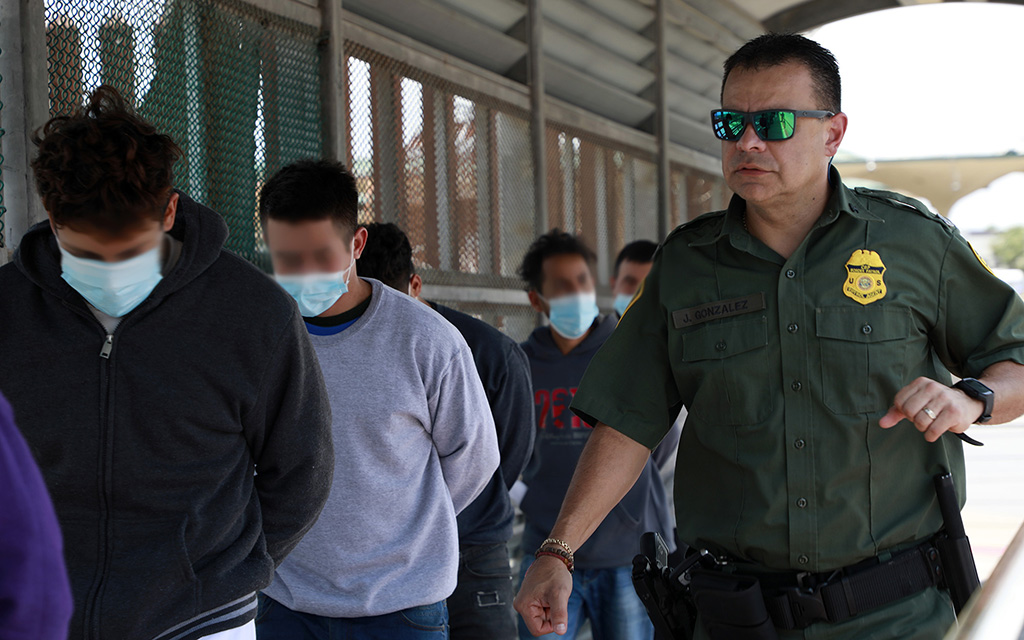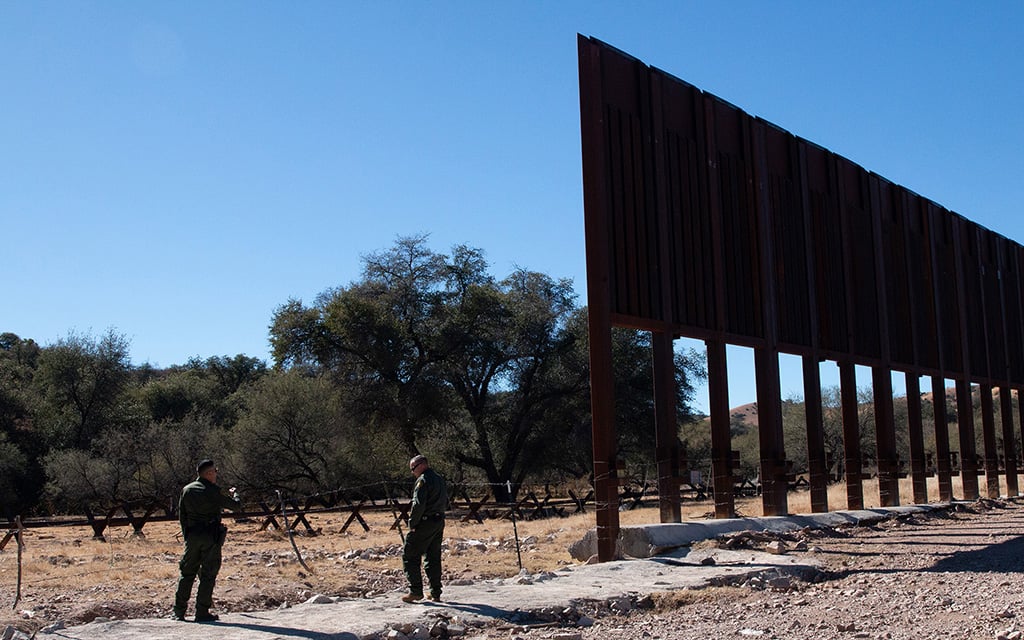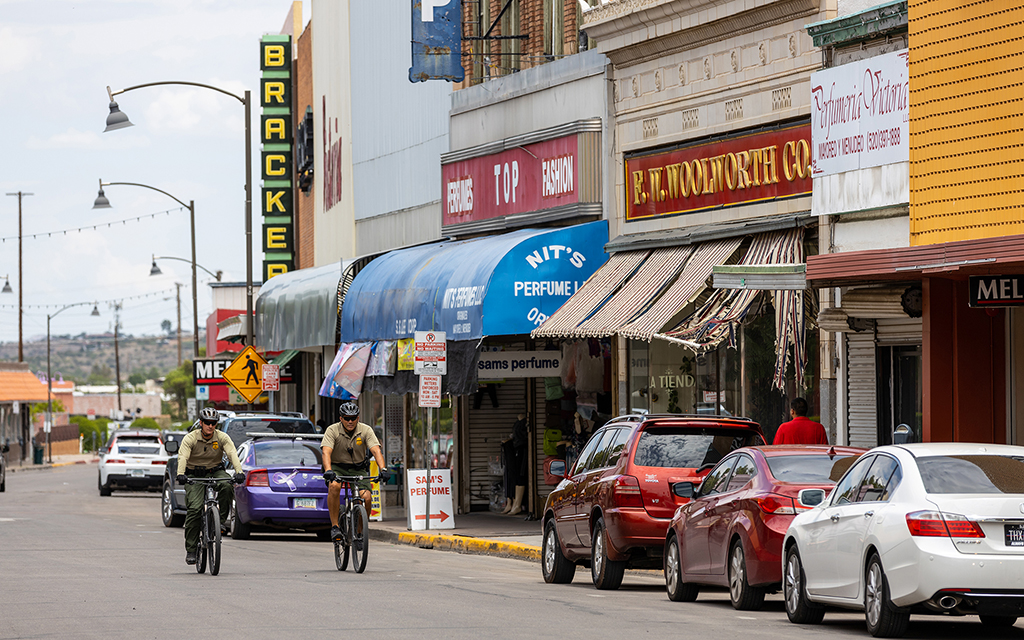
U.S. Border Patrol agents patrol Nogales on bike in this 2019 photo. Nogales is one of the border towns where Customs and Border Protection began releasing processed migrants for whom shelter was not immediately available. The cities say they’re coping – some grudgingly so. (Photo by Andrew Franklin/Customs and Border Protection)
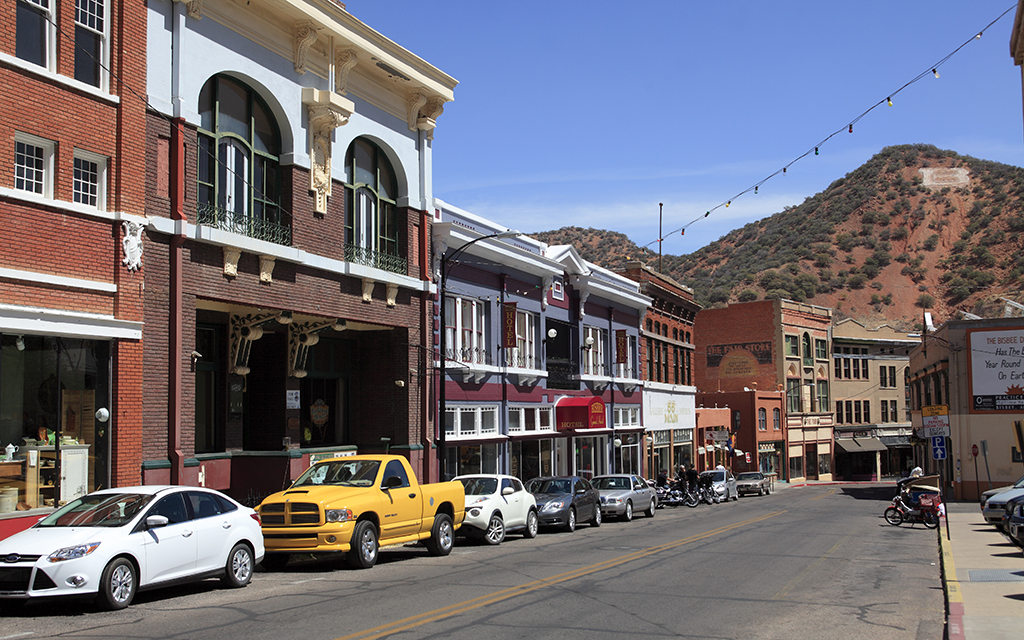
Bisbee City Manager Steve Pauken said the community is typically migrant-friendly, so officials were able to quickly organize support for migrants who were released in the town. He said residents volunteered, offered donations, and even meals for migrants waiting for the next bus to their next stop. (Photo courtesy of city of Bisbee)
WASHINGTON – More than a month after federal officials began “street releases” of migrants waiting for shelter, border mayors say their cities are managing to cope with the influx, but may soon be stretched beyond their capacity to help.
The releases began in early September, a last resort as both Customs and Border Protection and local community shelters reached capacity and overcrowding posed safety concerns. Migrants are released to wait for the next bus to a shelter in Phoenix, Tucson or elsewhere, turning the border towns into short-term bus stops.
“Sometimes it’s four hours, sometimes it’s six hours. There’s been very few that actually stay overnight … and then the bus will arrive within a disclosed time,” said Douglas City Manager Ana Urquijo.
But even for a short time, cities say they feel obligated to provide for the migrants.
“We’re coordinating all of that in with one shelter that the local faith community has stepped up to support,” Urquijo said.
Douglas Mayor Donald Huish said the community has been doing its best to adjust and coordinate for street releases.
“We don’t have them wandering around the streets by any means. But at the same token, it puts pressure on a small community that has no resources to start with,” Huish said.
Huish said small towns should not be expected to handle the federal government’s problem. Other mayors agree.
“It’s a situation that is created or at least sustained on the national level,” said Yuma Mayor Douglas Nicholls. “It should be taken care of by the federal government, particularly if the government is not going to try to take care of the situation where it should, across the border.”
Nicholls and other Yuma officials have testified to uncompensated costs the local hospital has had to bear for treatment of migrants, among other expenses for the community. While Yuma has not had street releases recently, officials are still preparing for the possibility that they might resume as they have in other towns.
“That would be not a great thing to do at all. There’s too many humanitarian issues,” Nicholls said.
“There aren’t a lot of opportunities to take buses and trains and planes out of town. So that kind of activity would then create a backlog of people,” Nicholls said. “We’re working on plans internally on how we could try to mitigate some of that.”
Other cities say they are also doing what they can with what they have.
Nogales Mayor Jorge Maldonado said that, on average, 90 to 100 migrants are waiting in his town each day. He says Border Patrol and city police are present when migrants exit the bus to keep things as safe as possible, but that the migrants have not caused any problems for his border town.
“They’re being screened criminally and medically. They’re not criminals,” Maldonado said. “They might end up getting the jobs that Americans don’t want to do but, you know, that’s the American choice.”
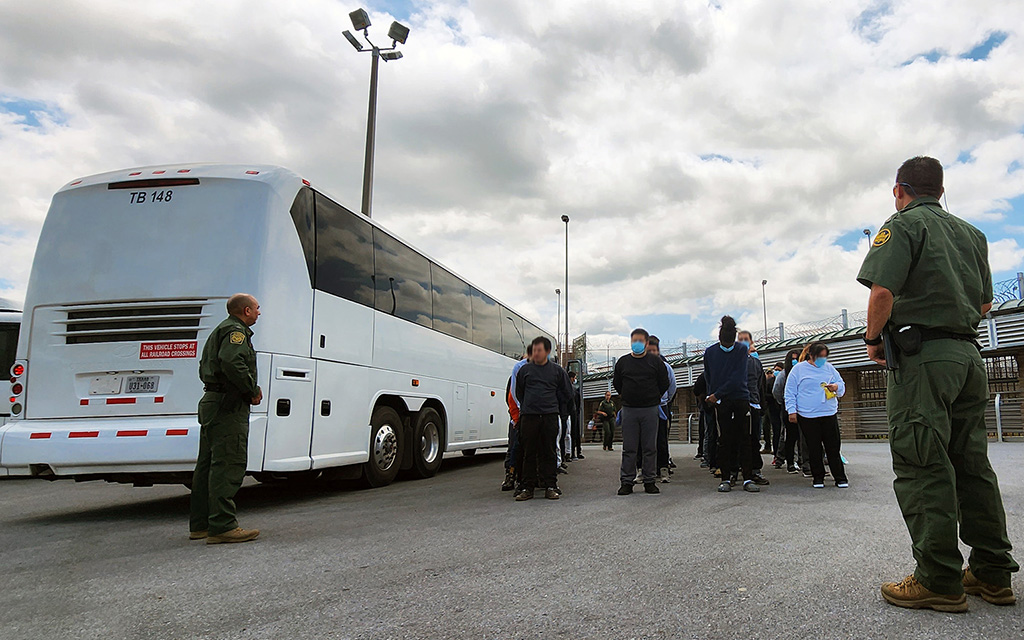
CBP officers repatriate migrants at the Texas border in June. The agency last month began releasing migrants who had been processed to stay in the U.S., but could not immediately be sheltered. (Photo by Jaime Rodriguez Sr./Customs and Border Protection)
Maldonado said migrants grab a bite to eat if they have the money to do so or wait for the next bus. Some find their own way to the shelters. But none are sticking around, he said.
“Others say, you know, I’m taking a taxi or I’m getting on the shuttle, and others take the bus route to … Tucson or Phoenix,” Maldonado said. “They don’t even know where Nogales is on the map.”
In Bisbee, City Manager Steve Pauken said the town assembled an incident action plan to accommodate migrants during their stay. When one group of 32 migrants waited overnight for their bus to arrive the following morning, for example, the Bisbee team of volunteers and county staff were able to coordinate a makeshift shelter in the city council chambers.
“Most of these folks on both of these buses that we took in were young women and their children,” Pauken said. “There were some young males and a couple of adult males who were, you know, there with their family.”
The community effort made light out of a challenging situation by volunteering, providing donations, and even meals for migrants waiting for the next bus.
“The community came forward and actually dug in their pockets to raise money to help our NGOs (nongovernmental organizations) buy the necessary supplies to make the meals that they made for the migrants, and also went and bought things like diapers and coloring books and crayons and toys … so that the kids had something to do while they were waiting,” Pauken said.
He added that the positive reaction and support was likely because their community is typically migrant-friendly.
“We’re kind of a blue dot in a sea of red here,” Pauken said. “You can’t help it when … 3- and 4-year-old kids get off a bus and you look in their eyes and it’s just like they don’t even know where they are, what’s happening to them.”
Advocates say street releases are a strain for migrants as well as the communities accommodating them.
“They’re coming for a specific reason and with a very strong hope that they can call America home,” said Christian Penichet-Paul, the assistant vice president at the National Immigration Forum. He said being released in a strange town is just “another obstacle and that obstacle makes it harder for that person to apply for asylum.”
“Ideally, CBP would work closely with local service providers, with local churches and other organizations to make sure that larger communities have more capacity to take care of those individuals,” Penichet-Paul said.
Migration Policy Institute analyst Colleen Putzel says street releases in rural areas are challenging for all involved, as those communities typically do not have the infrastructure and resources to support or transport migrants to their final destination.
“That creates strains in the communities because they may need to offer these services they’re not used to, or if there are organizations (assisting), they likely have smaller resources than in a bigger city,” Putzel said.
Huish said he’s just not sure what will happen if street releases continue in Douglas without federal support in sight.
“What’s the tipping point?” Huish asked.
“It’s not fair to ask community members without the possibilities of reimbursement or funds to continue to dig deep into their pockets to, to try to help,” Huish said. “We continue to push…our federal representatives that, hey, this can’t happen.”

